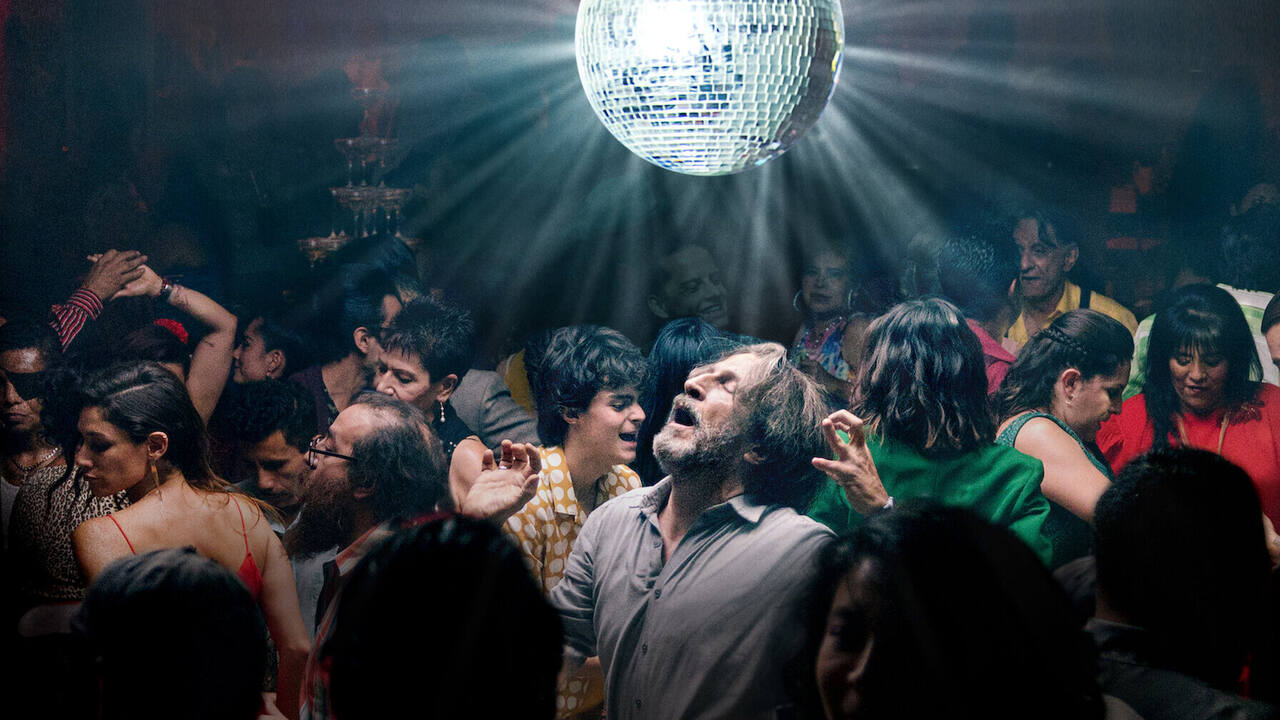
From the very first scene, you know Alejandro G. Iñárritu's Bardo, False Chronicle of a Handful of Truths, is going to be unusual. A long shadow runs and flies in the air, and the more it moves forward, the more you are seduced into the smoothness of this world. In the next scene, we notice a doctor pushing a baby inside a woman's womb because the newborn does not want to live in a fucked up world and prefers to live inside his mother. The strangeness only cranks up with progression as you get weirder scenes, like a transition from a metro to a house in a desert and people falling down on the ground with a thud.
We traverse this weird world alongside Silverio (Daniel Giménez Cacho), a Mexican journalist/documentary filmmaker. He will be given a prestigious American award in a few days, making him the first Latin American to be bestowed with this honor. But is this award given based on the merit of his work, or is it all a strategy to dial down the tension between the US and Mexico? Whatever the reason, Silverio is the talk of the town and is invited to give interviews on live TV shows.
But Silverio is not so happy with all the attention. He suffers from imposter syndrome. We see him being humiliated during an interview with a host named Luis (Francisco Rubio). Except the thing is, the interview never happened. The verbal attack occurred inside Silverio's imagination as, in reality, he refused to show up on the sets of the TV show.
"Reality" is a funny word in the context of Bardo. What's real? What's unreal? Someone mentions that "life is just a brief series of senseless events." Bardo is packed with senseless events. Except, they, ultimately, kind of make sense. One way to watch the film is to project your interpretations over it. Take the fight between the soldiers at Chapultepec Castle. The quirky movement of the soldiers (one of them slides on the floor) could suggest the presence of futility behind the confrontation. Or consider the scene in the men's washroom where Silverio turns into a child and has a chat with his (dead) father. It might be Iñárritu seeking approval from his own father.
If so, then it's not the only instance where the director makes us feel his presence. When Luis criticizes Silverio's work, his voice is muted. Basically, Iñárritu is shunning negative feedback and literally silencing the critics. It will not be a stretch to say Silverio is Iñárritu and the character-director acknowledge each other in the scene where Silverio meets his copy. But that doesn't mean the film regards Silverio with reverence. There are moments where the character is told he lives in a bubble. His own son accuses him of dismissing other viewpoints and holding his beliefs at a high level. Silverio is someone who puts himself on a pedestal but, at the same time, pretends to be a commoner. He will praise Mexico if you say bad things about it, and he will mock Mexico if you praise it.
When watching a movie like this, where the director takes us inside his mind and does whatever he wants to do with his canvas, you sense the joy of creative freedom but simultaneously feel that, at certain points, things do get ostentatious. The movie became too much for me to bear during the scene with Hernán Cortés. It's not enough that we are forced to listen as characters blabber on and on, but Iñárritu goes one step ahead and further spoils the mood by bringing our attention to the beauty and artificiality of the set. One of the extras says, "Someone is making one of those stupid movies about Hernán Cortés." Bardo has a habit of commenting on itself. It does outlandish things and then calls itself oneiric and pretentious. Iñárritu crafts images of his choice with passion and, at the same time, winks at us to let us know that he knows he is showing off. That's the kind of self-awareness one expects from an unconfident amateur. It looks ridiculous coming from the filmmaker who gave us Birdman and The Revenant.
Another way to behold Bardo is to consider it an exaggeration of reality. The Metro incident, at first, is shown with an abundance of water. When the scene is revisited later, we see how the event actually unfolded. And what about that baby who wanted to go inside his mother? Well, it's just Silverio trying to cope with loss. This exaggeration can be found in the way the camera stretches the buildings, giving the environment a feeling of expressionism. A character says, "Mexico is not a country but a state of mind." The same can be said about Bardo. Iñárritu's mental landscape is alluring, fanciful, and frustrating. Love it or hate it, but you cannot avert your gaze from it.
Final Score- [8/10]
Reviewed by - Vikas Yadav
Follow @vikasonorous on Twitter
Publisher at Midgard Times
Hi Everyone, after a due consideration, we have decided that we will be open for donations to help us in managing our website. We will be greatful for any kind of amount we receive. Thanks!
— Midgard Times 🎬 (@Moviesr_net) January 4, 2026
PayPal- [email protected] pic.twitter.com/DlNNz5Npm5
Get all latest content delivered to your email a few times a month.
Bringing Pop Culture News from Every Realm, Get All the Latest Movie, TV News, Reviews & Trailers
Got Any questions? Drop an email to [email protected]